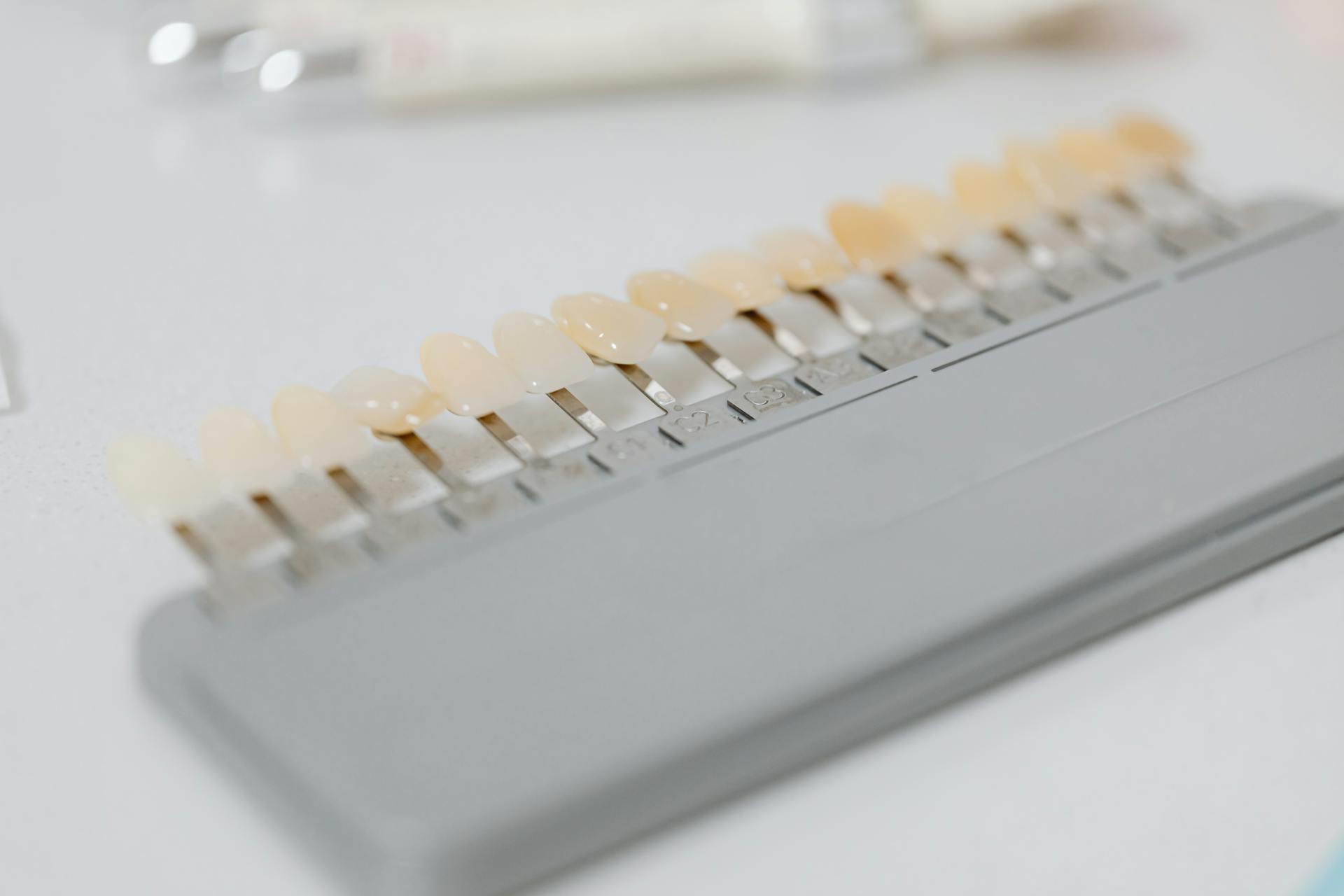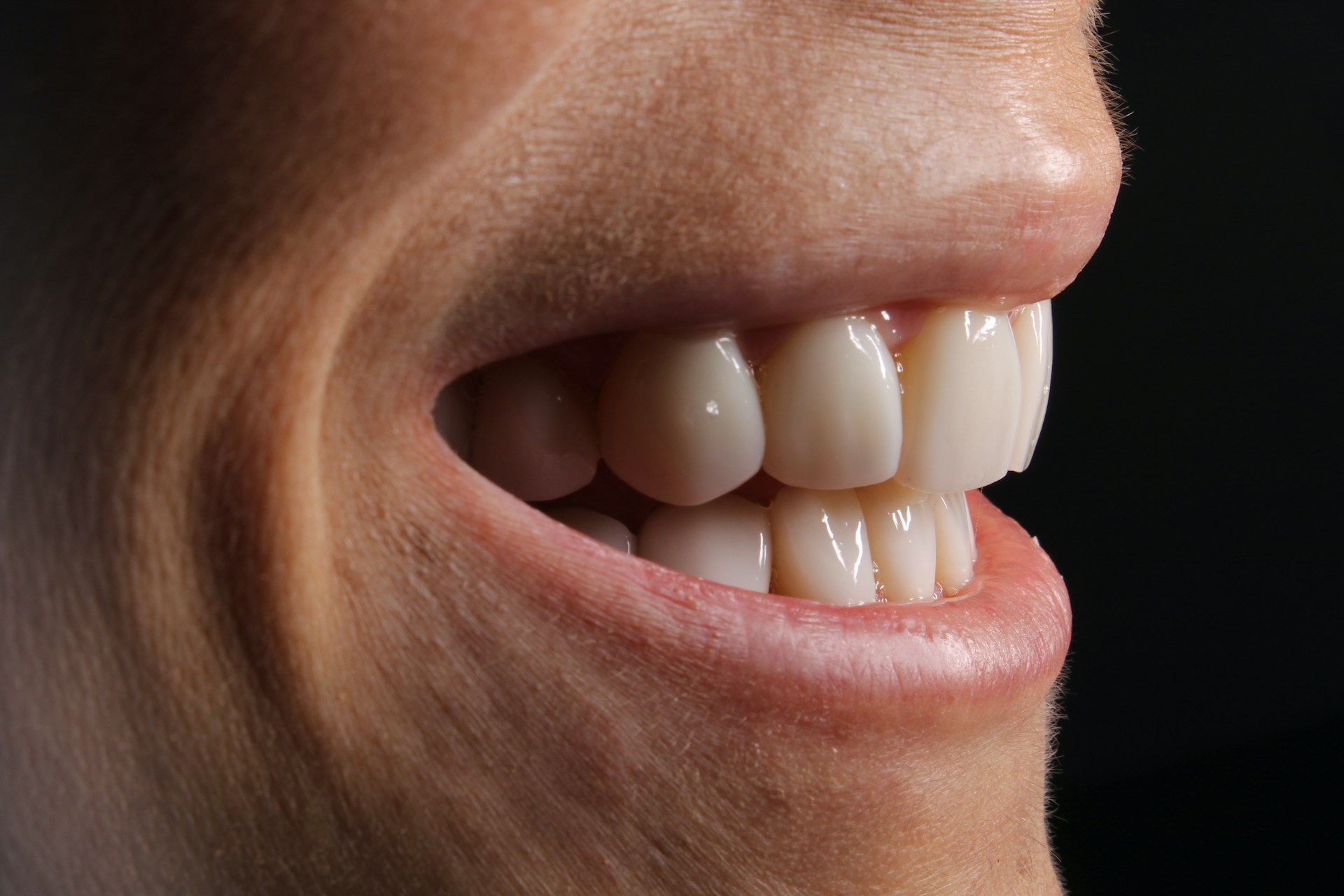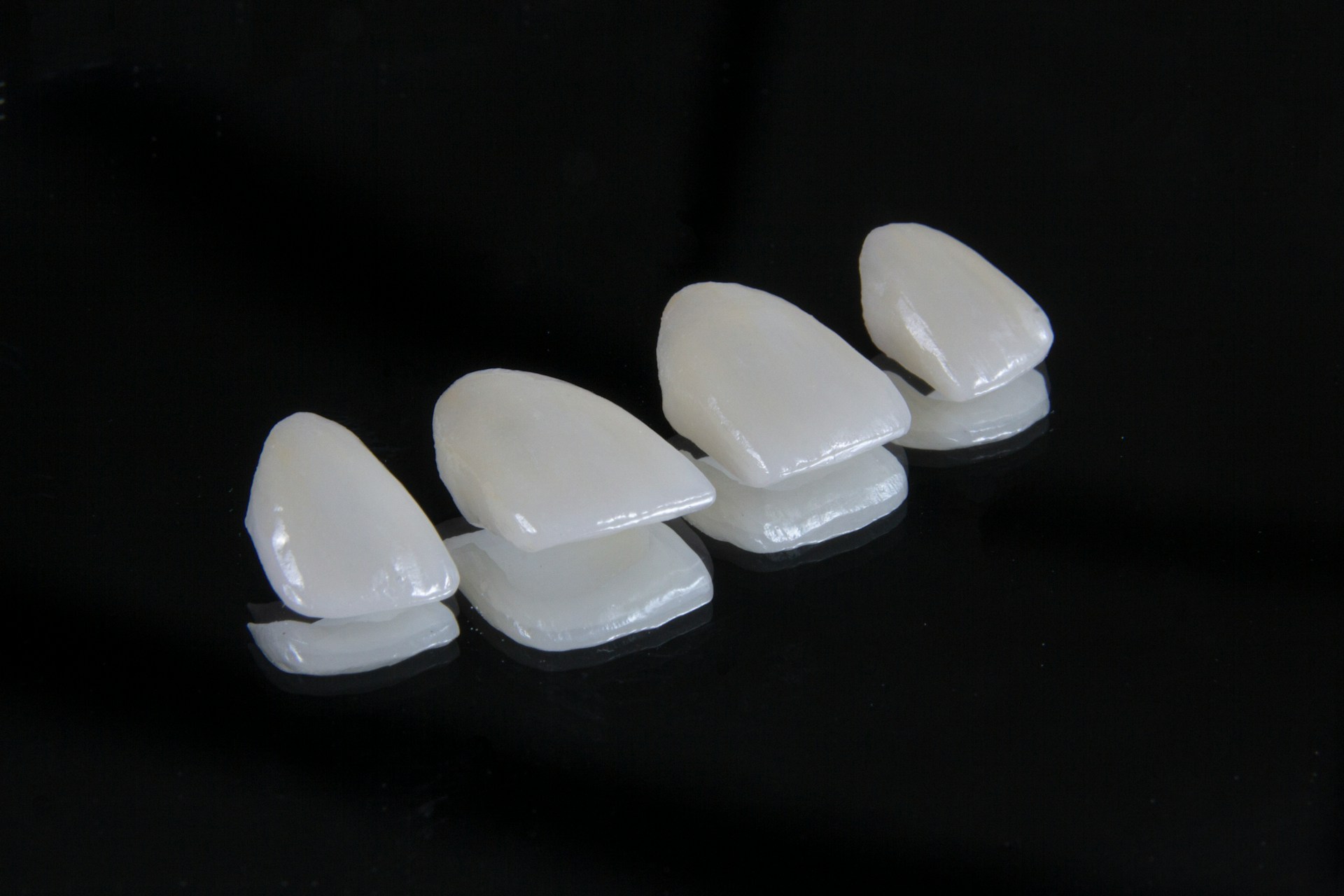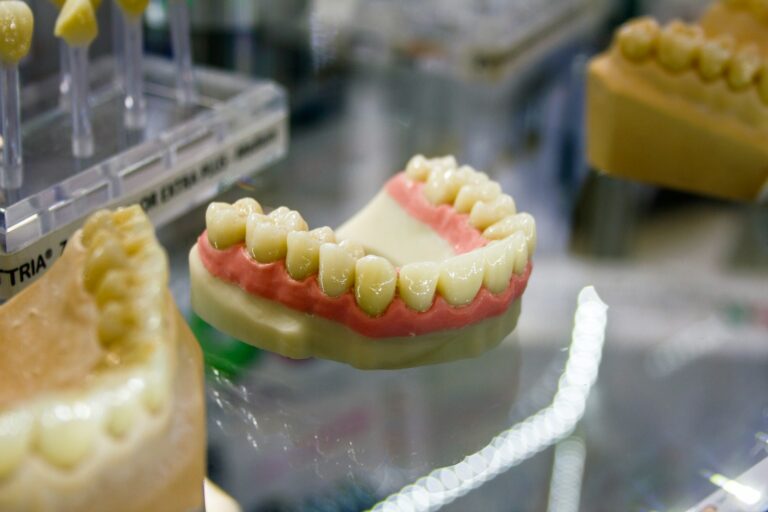
Porcelain veneers are a widely recognized cosmetic dental solution that can significantly enhance your smile and elevate your confidence. These thin shells of dental porcelain are specifically crafted to conceal imperfections, offering a natural-looking improvement to your teeth.
This article delves into the details of porcelain veneers, including their application process and the many benefits they provide. It also addresses potential risks, offers maintenance tips, and assists you in deciding whether veneers are the right option for transforming your smile.
Explore the essential aspects of porcelain veneers and learn how they can enhance your dental aesthetics!
What Are Porcelain Veneers?

Porcelain veneers are thin shells made from a durable porcelain material, custom-fitted to the front surface of teeth. They offer an effective solution for individuals looking to enhance their smiles through cosmetic dentistry.
These dental veneers are specifically designed to improve the aesthetic appearance of teeth, addressing concerns such as discolouration, gaps, and misalignment, which makes them a popular choice for smile makeovers.
It is important to have a dental consultation to determine the best fit and application process for veneers, tailored to each person’s unique dental health and cosmetic objectives.
How Are Porcelain Veneers Applied?
The application of porcelain veneers is a detailed dental procedure that usually involves multiple steps to ensure a perfect fit and enhance the overall appearance of a person’s smile.
It begins with a dental consultation where the dentist assesses the patient’s dental health and discusses their aesthetic goals. After that, dental impressions are taken to create custom veneers that match the natural colour and shape of the teeth.
During the fitting process, bonding agents are used to securely attach the veneers to the teeth, which ensures both long-lasting results and an improved smile design.
What Are the Benefits of Porcelain Veneers?
Porcelain veneers present a variety of benefits that greatly enhance both the aesthetic and functional aspects of dental health.
These cosmetic solutions improve the appearance of teeth by effectively covering imperfections such as chips, cracks, and gaps. They also offer stain resistance, which helps in maintaining a bright and healthy smile over the years.
Furthermore, the durability of porcelain ensures that these veneers can withstand daily wear and tear, making them a long-lasting treatment option for anyone looking to transform their smile.
1. Improves Appearance of Teeth
Porcelain veneers serve as an effective solution for enhancing the appearance of teeth, particularly for individuals dealing with discolouration, chips, or misalignment. They create a uniform and radiant smile that not only boosts confidence but also enhances overall facial aesthetics.
This cosmetic dentistry procedure involves minor reshaping of the teeth to achieve the desired enhancement, resulting in a significant improvement in tooth appearance.
These thin, durable porcelain shells bond seamlessly to the front surface of the teeth, effectively masking imperfections while maintaining a natural look. Their ability to mimic the translucence and sheen of natural enamel allows them to transform a lacklustre smile into a vibrant one.
This transformation can positively affect not just dental aesthetics but also personal interactions. As individuals undergo this transformation, many report a noticeable increase in self-esteem and a greater willingness to engage socially.
This reinforces the idea that porcelain veneers do more than merely enhance the teeth; they can reshape one’s experience of the world and influence how they relate to others.
2. Long-lasting Results
One of the most attractive features of porcelain veneers is their impressive longevity, often maintaining both their appearance and function for over a decade when properly cared for. This durability stems from the high-quality porcelain material, which not only endures daily wear but also resists staining and discolouration, ensuring that your smile stays bright and beautiful.
By keeping up with regular dental check-ups and maintaining a solid oral care routine, you can significantly extend the lifespan of your porcelain veneers.
It’s important to recognise that certain factors, such as individual oral habits like teeth grinding or clenching, can affect how long these veneers last. Dental professionals typically advise avoiding acidic foods and beverages that may contribute to erosion or damage.
Practising good dental hygiene—such as brushing twice daily and flossing—can help preserve the integrity of this investment in aesthetic dentistry. Selecting a skilled dentist for the application of your veneers is also crucial to achieving the best possible results.
Porcelain veneers not only improve one’s dental appearance but, with proper care, can offer remarkable durability that often exceeds initial expectations.
3. Stain-resistant
Porcelain veneers are highly regarded for their impressive stain-resistant properties, making them an excellent choice for individuals who enjoy beverages such as coffee, tea, or red wine, which can often lead to discolouration. The non-porous surface of porcelain not only helps to maintain oral hygiene but also keeps the veneers looking vibrant and fresh.
This stain resistance enhances the overall cosmetic results and reduces the need for frequent dental cleanings and touch-ups.
By minimising the buildup of stains and plaque, porcelain veneers enable individuals to maintain a confident smile without the constant concern of discolouration. This characteristic not only contributes to their long-term appearance but also encourages better oral hygiene practices, promoting more regular brushing and flossing.
The ease of maintenance associated with stain-resistant veneers makes them a practical option for those considering cosmetic procedures, as they seamlessly fit into daily routines while providing a visually pleasing outcome.
4. Customisable
One of the key benefits of porcelain veneers lies in their exceptional customisation options, enabling personalised care that caters to each patient’s distinct smile design. During the dental consultation, dentists collaborate closely with patients to identify the optimal colour, shape, and size of the veneers to achieve the desired aesthetic results.
This level of customisation ensures that the veneers integrate seamlessly with natural teeth, significantly enhancing the overall appearance of the smile.
The process often utilises advanced technology to provide a preview of the final outcome, allowing patients to envision their future smile. Each veneer is crafted with great precision to accommodate the individual’s dental structure and personal preferences, ensuring both comfort and satisfaction.
The ability to modify various attributes, such as translucency and texture, contributes to a natural appearance that reflects the patient’s personality. Consequently, individuals seeking transformative cosmetic enhancements can achieve a radiant smile that feels genuinely their own, making porcelain veneers a favoured option for those aiming to elevate their dental aesthetics.
What Are the Risks of Porcelain Veneers?

Porcelain veneers offer many advantages, but it is important to consider the potential risks associated with their application, especially concerning dental health and tooth sensitivity.
After the fitting of veneers, some patients may experience temporary sensitivity to hot and cold temperatures. This sensitivity can occur due to the slight reshaping of the tooth enamel that is necessary for proper adhesion.
Furthermore, if the veneers are not placed correctly or if appropriate maintenance guidelines are not followed, there is a risk of damage to the natural teeth.
1. Potential for Damage to Natural Teeth
The process of applying porcelain veneers involves reshaping the natural teeth, which carries the potential risk of damage if not performed correctly. If excessive enamel is removed during the veneer application, it could compromise the integrity of the underlying tooth structure. This underscores the importance of selecting a qualified dentist who specialises in aesthetic dentistry to ensure the longevity of both the veneers and the natural teeth.
Improper veneer application can lead to various risks, including increased tooth sensitivity, a heightened vulnerability to decay, and the possibility of requiring more extensive dental work in the future. Dentists must utilise precise techniques to maintain a delicate balance between achieving the desired cosmetic enhancement and preserving the health of the natural teeth.
Before any procedure, a thorough consultation and diagnostic imaging should take place to allow the dental professional to evaluate each individual’s unique dental anatomy. Choosing a dental expert with extensive training and experience can significantly minimise these risks, ensuring that the veneer application is not only safe and successful but also enhances both the appearance and overall health of one’s smile.
2. Sensitivity to Hot and Cold
After receiving porcelain veneers, some patients may encounter tooth sensitivity to hot and cold stimuli. This is a common reaction resulting from modifications to the tooth enamel. Typically, this sensitivity diminishes after a short period, but it is crucial to adhere to the aftercare advice provided by your dentist to effectively manage any discomfort.
Regular dental check-ups can also play a key role in monitoring sensitivity levels and ensuring the overall health of both your veneers and natural teeth.
In the immediate aftermath of the procedure, individuals might notice an increased sensitivity to temperature changes, which can be quite uncomfortable. To help alleviate this, using desensitising toothpaste can be advantageous, as it helps to strengthen enamel and reduce discomfort.
Additionally, steering clear of extreme temperatures in food and beverages can ease sensitivity during the initial healing phase. Maintaining a thorough oral hygiene routine, including gentle brushing and flossing, is essential for preserving dental health.
Frequent visits to your dental professional are important as well, as they allow for timely adjustments and professional cleanings. This ensures that both your veneers and underlying teeth remain in optimal condition, ultimately reducing any discomfort related to sensitivity.
How to Take Care of Porcelain Veneers?
Proper care of porcelain veneers is essential for preserving their appearance and longevity. It involves a consistent oral care routine that aligns with good dental hygiene practices.
Regular brushing and flossing are important, and these should be complemented by professional cleanings to prevent plaque build-up and maintain gum health. Patients are encouraged to follow home care tips and schedule regular dental visits to ensure that both their veneers and natural teeth remain in optimal condition.
1. Regular Brushing and Flossing
Regular brushing and flossing are vital parts of an effective oral hygiene routine, particularly for those with porcelain veneers. Using proper brushing techniques helps prevent plaque build-up on both the veneers and natural teeth.
Daily flossing is equally important, as it effectively removes food particles and plaque from between the teeth, promoting overall dental health. By adhering to these practices, individuals not only extend the lifespan of their veneers but also support the health of the surrounding gum tissue.
Maintaining these habits can significantly lower the risk of gum disease, which is essential for anyone hoping to keep their smile in great shape over time. Using a soft-bristled toothbrush and specialised toothpaste protects the glossy finish of the veneers while ensuring that the enamel on natural teeth remains safe.
Additionally, regular visits to the dentist for professional cleanings and check-ups can enhance at-home care.
It is essential to remember that, even with veneers, the foundation of oral hygiene plays a crucial role in preserving not just aesthetics, but overall oral health as well.
2. Avoiding Staining Foods and Drinks
To keep porcelain veneers looking bright and fresh, it is essential to be mindful of certain foods and drinks that could compromise their aesthetic appeal. Beverages such as coffee, tea, and red wine, along with foods that are rich in pigments, may lead to discolouration even though porcelain is known for its stain-resistant qualities. By adopting thoughtful lifestyle choices and maintaining good oral hygiene, individuals can help ensure the longevity and appearance of their veneers for years to come.
Along with these beverages, it is advisable to avoid highly acidic foods, such as tomatoes and soy sauce, as they can gradually wear away the protective glossy surface of the veneers. For those who enjoy these foods and drinks, rinsing the mouth with water afterwards can help reduce the potential for staining.
Regular brushing with a non-abrasive toothpaste and scheduling routine dental check-ups play a significant role in keeping the veneers shining.
Using a straw when consuming staining beverages can also minimise direct contact between these agents and the veneers, providing an additional layer of protection against discolouration.
3. Wearing a Mouthguard for Sports
Wearing a mouthguard during sports activities is essential for protecting one’s smile, particularly for individuals with porcelain veneers. It serves as a preventative measure against potential damage from impacts. A custom-fitted mouthguard not only safeguards your veneers but also promotes overall dental health by cushioning the teeth against trauma.
Prioritising dental protection is vital to ensure that your veneers remain intact and functional, allowing you to maintain a confident smile while engaging in athletic activities.
This is especially important in high-contact sports where falls or collisions are frequent. Without appropriate protection, the risk of chips, fractures, or even dislodgement increases significantly, jeopardising not only the appearance of the veneers but also the health of the supporting teeth and gums.
Moreover, utilising a mouthguard can help prevent bruxism, a condition that may lead to serious oral health issues over time. Investing in a quality mouthguard is a proactive approach, enabling athletes to fully participate in their activities while minimising the risk of painful dental emergencies.
How Long Do Porcelain Veneers Last?

The lifespan of porcelain veneers can vary due to several factors, such as the quality of dental care, oral hygiene practices, and lifestyle choices. Generally, veneers tend to last between 10 and 15 years.
With proper maintenance—which includes regular dental visits and consistent oral hygiene routines—patients can enjoy the aesthetic benefits of veneers for many years. It is essential to inform patients about the various factors that influence the durability of veneers, enabling them to make informed decisions about their dental care.
What Is the Cost of Porcelain Veneers?
The cost of porcelain veneers can vary significantly depending on several factors, including the dentist’s expertise, the geographical location, and the complexity of the treatment options selected.
Generally, patients should anticipate spending between £800 and £2,500 per tooth for this cosmetic procedure, with dental insurance typically covering a portion of the expense.
By understanding the financial aspects associated with veneer application, patients can make informed decisions while maintaining their comfort throughout the process.
Are Porcelain Veneers Right for Me?
Deciding whether porcelain veneers are the right option requires a careful evaluation of one’s dental needs, oral health, and cosmetic goals.
Individuals with good oral health and realistic expectations about the procedure’s outcomes typically make excellent candidates for this cosmetic solution.
Engaging in a comprehensive dental consultation with a qualified dentist can help identify the most suitable veneer options designed to achieve the desired smile enhancement, while also taking into account all relevant dental health factors.
1. Good Oral Health
Maintaining good oral health is essential when considering porcelain veneers, as it ensures that the underlying teeth are robust and healthy enough to support this cosmetic enhancement. Individuals with untreated cavities, gum disease, or other dental issues may not be ideal candidates until these concerns are effectively addressed through appropriate dental treatments.
Prioritising optimal oral health before veneer application not only leads to better aesthetic outcomes but also enhances the longevity of the veneers.
Neglecting fundamental dental hygiene practices can jeopardise the success of the veneers and compromise overall oral health. Before committing to cosmetic enhancements, it is advisable for individuals to focus on their dental care routine. This includes scheduling regular check-ups, undergoing professional cleanings, and adhering to a comprehensive oral hygiene regimen.
Taking this proactive approach establishes a solid foundation for successful cosmetic treatments, ultimately allowing for greater resilience and satisfaction with the final results. Therefore, understanding the connection between oral health and cosmetic dentistry is crucial for achieving a smile that is both beautiful and lasting.
2. No Teeth Grinding or Clenching
Individuals who experience teeth grinding or clenching, a condition known as bruxism, should carefully reconsider the use of porcelain veneers. These habits can significantly impact the durability and longevity of the veneers.
The wear and tear from the intense pressure generated during grinding not only threatens the integrity of the veneers but can also lead to discomfort and further oral health complications. Therefore, it is essential for anyone considering this cosmetic procedure to take proactive measures.
Dentists commonly recommend using custom-fitted night guards to help mitigate these harmful effects, as they can protect both the veneers and the underlying tooth structure.
For those with bruxism, exploring alternative treatments like dental bonding or crowns might offer a more suitable solution, ultimately ensuring the best outcomes for overall dental health.
3. Realistic Expectations
Having realistic expectations regarding the outcomes of porcelain veneers is crucial for ensuring patient satisfaction and the overall success of this cosmetic procedure. While veneers can significantly enhance the aesthetics of one’s smile, it is important for patients to be aware of the limitations and potential challenges that may arise during treatment.
A comprehensive dental consultation can offer valuable insights and help establish clear goals for achieving the best possible cosmetic results.
Educating individuals about the procedure not only fosters realistic expectations but also give the power tos them to actively participate in their treatment. This collaboration emphasizes the importance of maintaining proper oral hygiene, the potential need for adjustments after application, and the expected longevity of the veneers themselves.
When patients are informed about the care required for their new smiles, they are more likely to appreciate the results and feel satisfied with their decisions. Therefore, taking the time to address misconceptions and outline achievable outcomes is a vital step in the cosmetic journey.
Frequently Asked Questions
What are porcelain veneers and what are the benefits of getting them?
Porcelain veneers are thin, custom-made shells that are bonded to the front surface of your teeth. They are a popular cosmetic dentistry option that can improve the appearance of your smile by covering up imperfections such as chips, stains, and gaps. The benefits of porcelain veneers include a natural-looking appearance, stain resistance, and durability.
How long do porcelain veneers typically last?
With proper care, porcelain veneers can last anywhere from 10-15 years. This largely depends on how well you take care of your teeth and gums, as well as if you avoid habits such as teeth grinding and biting down on hard objects.
Are there any foods or beverages I should avoid with porcelain veneers?
While porcelain veneers are resistant to staining, it is still recommended to avoid consuming excessive amounts of coffee, tea, red wine, and other dark-colored foods and drinks. These can potentially stain your veneers over time and affect their overall appearance.
How do I take care of my porcelain veneers on a daily basis?
Maintaining good oral hygiene is key to keeping your porcelain veneers in top shape. This includes brushing your teeth twice a day, flossing daily, and using a non-abrasive toothpaste. It is also important to visit your dentist for regular check-ups and cleanings.
Can I still whiten my teeth if I have porcelain veneers?
Yes, but it is important to consult with your dentist before attempting to whiten your teeth. While porcelain veneers are resistant to staining, your natural teeth may not be. Your dentist can recommend the best whitening method to ensure a consistent colour between your veneers and natural teeth.
What should I do if my porcelain veneers become damaged or come off?
If your veneers become damaged or come off, it is important to contact your dentist immediately. Do not attempt to fix them yourself or use any over-the-counter adhesives. Your dentist will be able to properly assess the situation and provide the necessary repairs or replacements.






